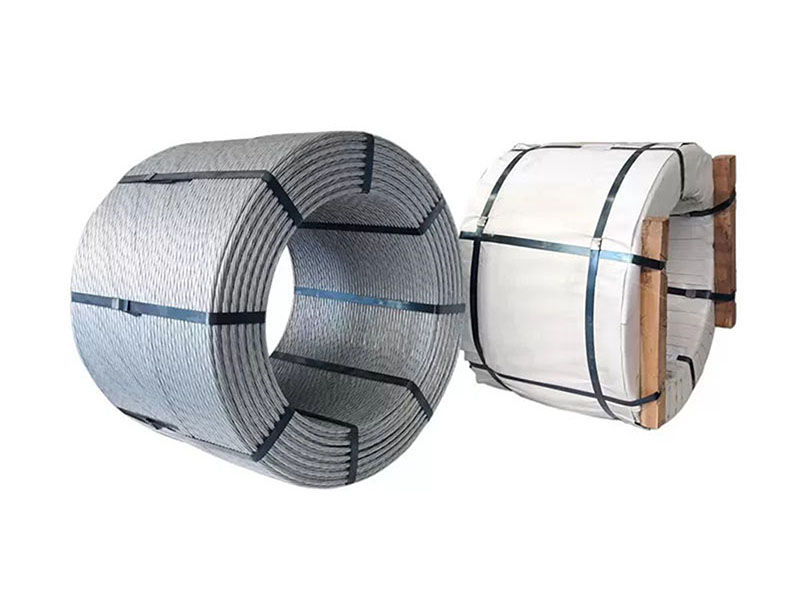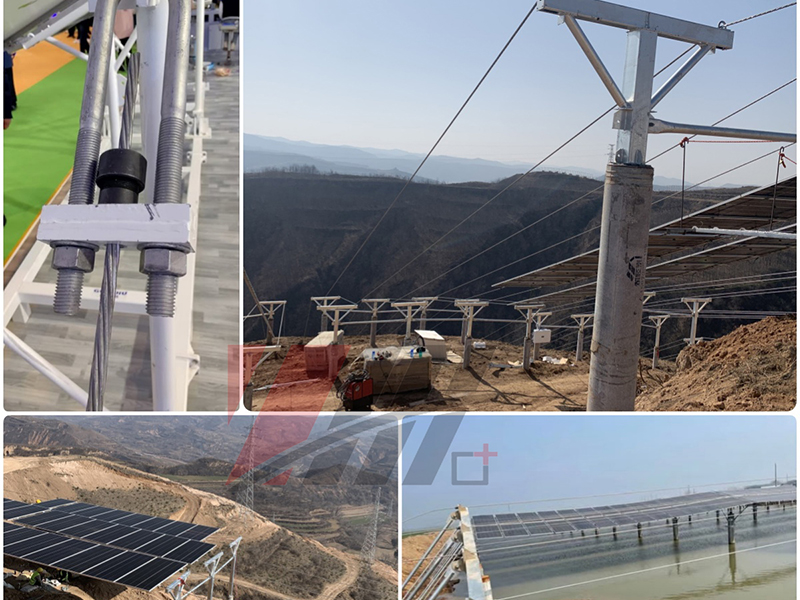EN
Jun. 30, 2025
Galvanized PC strands have excellent corrosion resistance, and the thickness of the galvanized layer is the core factor that determines the corrosion resistance of PC steel strands. It directly affects the service life and environmental adaptability of the steel strands, and is a very critical factor.
How to determine the thickness of the galvanized layer? This depends on the different thicknesses selected according to the environment in which it is located. The following is the specific impact mechanism of the galvanized layer thickness on the corrosion resistance and the key points of engineering application:

Ⅰ. Impact of Thickness Classification on Anti-corrosion Performance
1.Thickness Classification
- Grade A (extra thick): zinc layer weight ≥350g/m² (≈50μm), suitable for severe corrosion environments such as marine and chemical industries, with a design life of >50 years.
- Grade B (thick): 190–350g/m² (≈27–50μm), used in humid and salt spray environments (such as coastal bridges), with a life of 30–50 years.
- Grade C (thin): <190g/m² (<27μm), limited to short-term corrosion protection or dry environments, and requires additional coating.
2. Principle of Protection Mechanism
- Sacrificial Anode Aaging: The thicker the zinc layer, the longer the electrochemical protection lasts. Experiments show that a 350g/m² zinc layer can maintain cathodic protection for more than 20 years in a salt spray environment, while a thin layer (<200g/m²) fails in only 5–10 years.
- Physical Barrier Strengthening: A thick zinc layer can more effectively seal surface defects of the steel substrate, block the penetration of chloride ions and water vapor, and protect the substrate from corrosion.
Ⅱ. Insufficient Thickness Increases the Risk of Corrosion
When the zinc layer is less than 190g/m², it is easy to cause local iron exposure due to mechanical damage (such as transportation scratches) or uneven coating, which accelerates local corrosion and causes pitting and perforation.
Salt spray test shows that rust spots appear in samples with 150g/m² zinc layer within 2000 hours, while samples with 350g/m² can exceed 6000 hours.
Ⅲ. Control Process Quality According to Engineering Requirements
1. Match Thickness According to Environment
| Environment Type | Zinc Coating Grade | Reference Standards |
| Marine/High Chloride | Grade A (≥350g/m²) | GB/T 13912-2020 |
| Industrial Acid Rain/Salt Spray Areas | Grade B(220–350g/m²) | YB/T 5004-1993 |
| Dry Inland Environment | Grade C + auxiliary coating | DL/T 802.10-2019 |
2. Criticality of Process Quality
Uniformity Requirements: Thickness fluctuation must be less than ±10%, sharp corners and recesses must be completely covered (hot-dip galvanizing process is better than electroplating), the zinc layer is evenly distributed and not easily corroded.
Adhesion Verification: There is no peeling of the zinc layer in the bending test, no bubbling after 500 hours of salt spray test, and the zinc layer has good adhesion, protecting the steel strand from corrosion.
Ⅳ. Cooperate with Other Solutions to Enhance Corrosion Resistance
Severely Corrosive Environment: adopt triple protection of "thick zinc layer (grade A) + HDPE sheath + anti-corrosion grease", which is 30% cheaper than single epoxy coating and easy to maintain.
Anchorage Area Protection: The zinc layer can make up for the sealing weakness of the anchor end of the unbonded steel strand to avoid crevice corrosion.

Conclusion
The thickness of the galvanized layer is the decisive parameter for the corrosion resistance of PC steel strands: for economical corrosion protection, you can choose Grade B (220–350g/m²) to meet most engineering needs; for long-term protection, you can choose Grade A thick zinc layer + composite solution, which is suitable for century-old projects such as cross-sea bridges; our factory can provide finished products of appropriate thickness according to project needs. We can customize according to the appearance and specifications provided by customers. As long as you have needs, you can choose the right product, or you can consult us to provide you with professional answers to questions. If you are interested in PC steel strand product, please feel free to contact us by email or phone!
What is SWRH82B material and what are its usages?
What is the Anti-corrosion Principle of Galvanized PC Steel Strands?
Yuanxian High-tech Material is a company serving a worldwide customers base providing innovative and reliable product solution that recognizes the value of customer care.
+86 180 2006 1362
Haitai Huake Third Road No.1, Huayuan Industrial Zone, Binhai High Tech Zone, Tianjin, china
Quick Links
Product Category
Request a Quote
Welcome to subscribe toour email message!

Send a Message